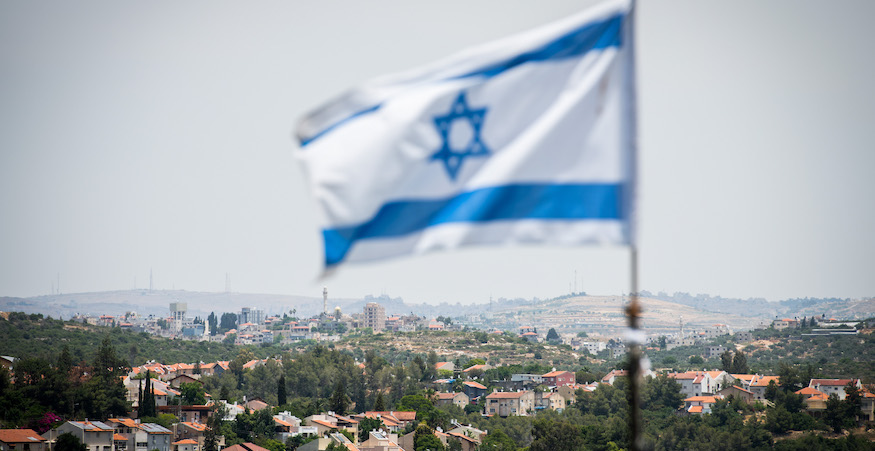Sovereignty is Critical
Israel liberated Judea and Samaria in 1967, in response to Jordan’s unprovoked attack against Israel from that area. However, Israel did not apply sovereignty to this area at the time, unlike its immediate application of sovereignty in Jerusalem, liberated at the same time. Ever since Judea and Samaria have been the subject of negotiations between Israel and various Arab partners. And that, unfortunately, has created a sense among many that Israel’s presence in Judea and Samaria is temporary.
“From the Oslo Accords to this very day, plans have been put forward to create a Palestinian State in Judea and Samaria.”
From the Oslo Accords to this very day, plans have been put forward to create a Palestinian State in Judea and Samaria. This has created a hesitancy in both the Israeli and the international response to Arab terrorism, which, in turn, has created an even greater impetus for the terrorists to persist, believing that just a bit more pressure will produce the desired withdrawal.
The settlement movement, in contrast, has always been predicated on the belief that history, law and Biblical considerations support Israel’s exclusive claim to Judea and Samaria. When Israelis re-established the Jewish community in Hebron in 1968, they were not only returning to an area where Jews had been brutally massacred and driven from the city in 1929, but they were renewing a Jewish presence in a city that had been a Jewish centre since Abraham’s time. And it is that notion of return that has fueled the establishment of more than 150 communities throughout Judea and Samaria, numbering close to 500,000 people today.
The application of sovereignty over these areas, therefore, is vital because it is an accurate expression of a reality that already exists. Proposals that consider the establishment of a Palestinian State in Judea and Samaria ignore the reality on the ground, and create an alternative, dream world. But so long as Israel does not apply sovereignty, that dream world will still exist and it will, indeed, fuel ongoing terrorism. Sovereignty is a definitive statement on behalf of the State of Israel that this area will belong to Israel forever. Once that understanding penetrates Arab psyches, most will quit fighting. It will look for ways to live with this reality.
Actually, to some degree this is already happening, as more and more Arabs in the area are openly advocating for Israeli sovereignty, believing their interests will be better served by a democratically-elected Israeli government, which guarantees fundamental human rights to its citizens, as opposed to the very corrupt and dictatorial Palestinian Authority.
Clearly, the Sovereignty movement received an enormous boost by the Trump Administration, which announced its support for Israeli application of sovereignty in 30% of Judea and Samaria. In response, Netanyahu promised to apply sovereignty immediately but has not moved forward on this promise to date. Recently, upon the announcement of the UAE agreement with Israel, the United States declared that the sovereignty process was being put on hold. At the same time, Israeli political leaders have announced that the process is being delayed, not cancelled.
“Had Netanyahu proceeded with sovereignty as promised, it would never have been halted for the UAE agreement”
Israeli sovereignty in Judea and Samaria is not only the right and just thing to do, but it is the best way to promote true peace in the region. In addition, it will make it much easier to develop available land in the area and expand existing communities. The question is whether we have already squandered an opportunity that may never again return. Had Netanyahu proceeded with sovereignty as promised, it would never have been halted for the UAE agreement. The UAE agreement reflects the Gulf States’ strategic decision to prioritise an alliance with Israel over the Palestinian cause.
The real risk lies with the American elections. If Trump is re-elected, sovereignty will likely move forward shortly after the election. However, Biden is opposed to the very notion of Israeli sovereignty in Judea and Samaria. If he becomes president, it is unlikely that the Israeli government would move forward in the face of US opposition. If Biden does win, however, there may still be a window of opportunity. During the last days of Obama’s tenure as president, and knowing that Trump was about to reverse his policies towards Israel, he engineered Security Council Resolution 2334, declaring the settlements illegal under international law. If Trump loses the election, he may well rely on this Obama precedent and recognise Israel’s application of sovereignty, just before handing over the reins to Biden.
While it is far from certain that sovereignty will be applied in Judea and Samaria, there is no question that it is a step that should be taken. Let us hope that the leaders of Israel and the US have the courage and the wisdom to do the right thing.





